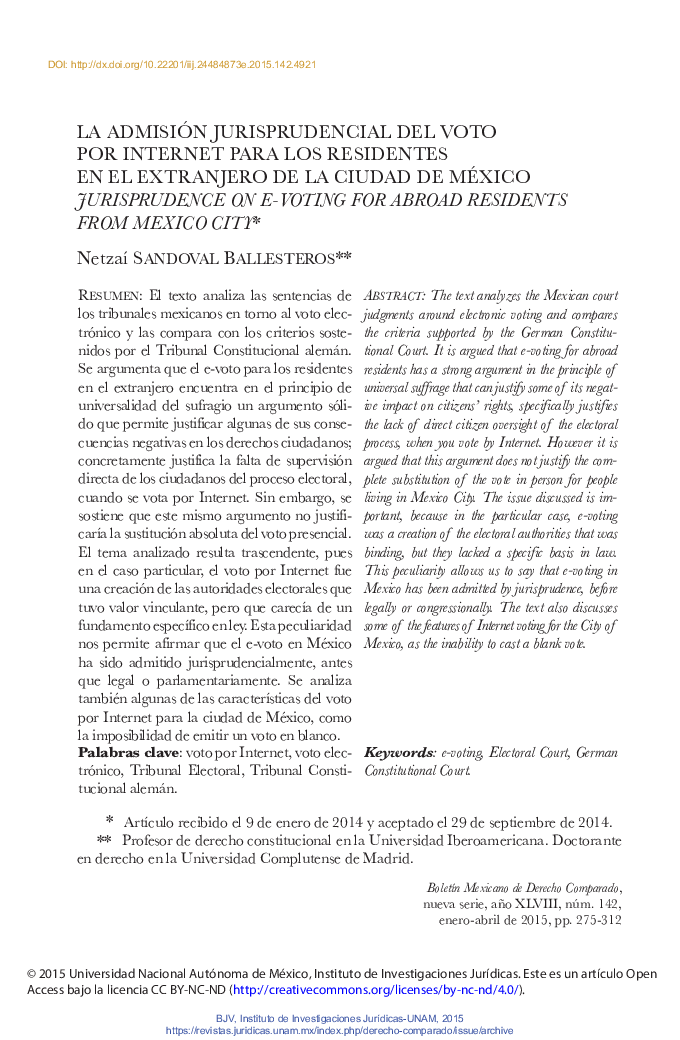| Article ID | Journal | Published Year | Pages | File Type |
|---|---|---|---|---|
| 7531013 | Boletín Mexicano de Derecho Comparado | 2015 | 38 Pages |
Abstract
The text analyzes the Mexican court judgments around electronic voting and compares the criteria supported by the German Constitutional Court. It is argued that e-voting for abroad residents has a strong argument in the principle of universal suffrage that can justify some of its negative impact on citizens' rights, specifically justifies the lack of direct citizen oversight of the electoral process, when you vote by Internet. However it is argued that this argument does not justify the complete substitution of the vote in person for people living in Mexico City. The issue discussed is important, because in the particular case, e-voting was a creation of the electoral authorities that was binding, but they lacked a specific basis in law. This peculiarity allows us to say that e-voting in Mexico has been admitted by jurisprudence, before legally or congressionally. The text also discusses some of the features of Internet voting for the City of Mexico, as the inability to cast a blank vote.
Keywords
Related Topics
Social Sciences and Humanities
Social Sciences
Law
Authors
Netzaà Sandoval Ballesteros,
